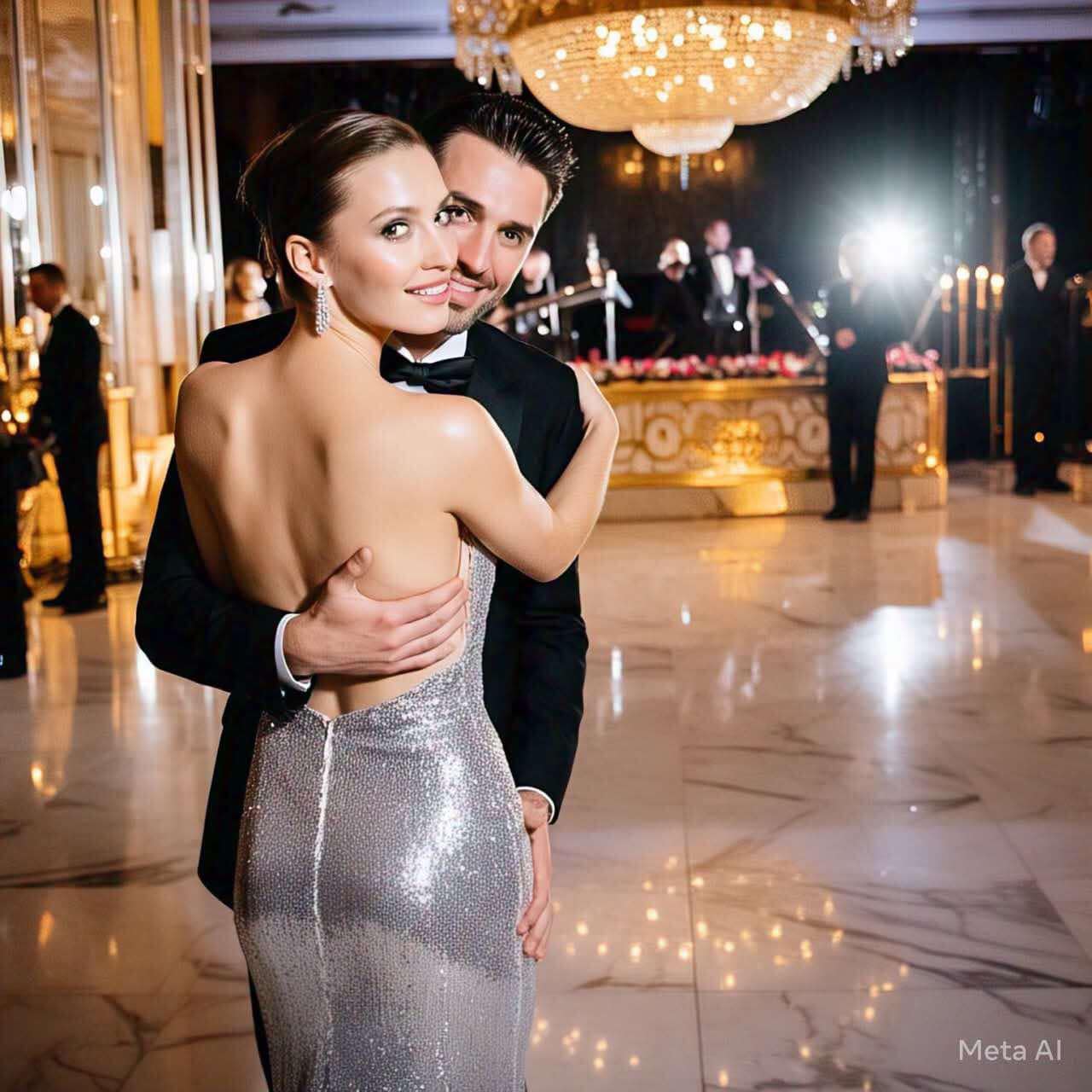Listen Audiobook Version:
Chapter 9
A poor, bare, miserable room it was, with broken windows, no fire, ragged bedclothes, a sick mother, wailing baby, and a group of pale, hungry children cuddled under one old quilt, trying to keep warm. How the big eyes stared and blue lips smiled as the girls went in!
“Ach, mein Gott! It is good angels come to us!” said the poor woman, crying for joy.
“Funny angels in hoods and mittens,” said Jo, and set them laughing.
In a few minutes it really did seem as if kind spirits had been at work there. Hannah, who had carried wood, made a fire, and stopped up the broken panes with old hats and her own cloak. Mrs. March gave the mother tea and gruel, and comforted her with promises of help, while she dressed the little baby as tenderly as if it had been her own. The girls, meantime, spread the table, set the children around
the fire, and fed them like so many hungry birds—laughing, talking, and trying to understand the funny broken English.
“Das ist gut!” “Die Engelkinder!” cried the poor things, as they ate, and warmed their purple hands at the comfortable blaze. The girls had never been called angel children before, and thought it very agreeable, especially Jo, who had been considered a “Sancho” ever since she was born. That was a very happy breakfast, though they didn’t get any of it; and when they went away, leaving comfort behind, I think there were not in all the city four merrier people than the hungry little girls who gave away their breakfasts and contented themselves with bread and milk on Christmas morning.
“That’s loving our neighbor better than ourselves, and I like it,” said Meg, as they set out their presents, while their mother was upstairs collecting clothes for the poor Hummels.
Not a very splendid show, but there was a great deal of love done up in the few little bundles; and the tall vase of red roses, white chrysanthemums, and trailing vines, which stood in the middle, gave quite an elegant air to the table.
“She’s coming! Strike up, Beth! Open the door, Amy! Three cheers for Marmee!” cried Jo, prancing about, while Meg went to conduct Mother to the seat of honor.
Beth played her most cheerful march, Amy threw open the door, and Meg enacted escort with great dignity. Mrs. March was both surprised and touched; and smiled with her eyes full as she examined her presents, and read the little notes which accompanied them. The slippers went on at once, a new handkerchief was slipped into her pocket, well scented with Amy’s cologne, the rose was fastened in her bosom, and the nice gloves were pronounced a “perfect fit.”
There was a good deal of laughing and kissing and explaining, in the simple, loving fashion which makes these home festivals so pleasant at the time, so sweet to remember long afterward, and then all fell to work.
The morning charities and ceremonies took so much time that the rest of the day was devoted to preparations for the evening festivities. Being still too young to go often to the theater, and not rich enough to afford any great outlay for private performances, the girls put their wits to work, and—necessity being the mother of invention—made whatever they needed. Very clever were some of their productions—pasteboard guitars, antique lamps made of oldfashioned butter boats covered with silver paper, gorgeous robes of old cotton glittering with tin spangles from a pickle factory, and armor covered with the same useful diamond-shaped bits, left in the sheets when the lids of tin preserve pots were cut out. The furniture was used being turned topsy-turvy, and the big chamber was the scene of many innocent revels.
Chapter 9
A poor, bare, miserable room it was, with broken windows, no fire, ragged bedclothes, a sick mother, wailing baby, and a group of pale, hungry children cuddled under one old quilt, trying to keep warm. How the big eyes stared and blue lips smiled as the girls went in!
“Ach, mein Gott! It is good angels come to us!” said the poor woman, crying for joy.
“Funny angels in hoods and mittens,” said Jo, and set them laughing.
In a few minutes it really did seem as if kind spirits had been at work there. Hannah, who had carried wood, made a fire, and stopped up the broken panes with old hats and her own cloak. Mrs. March gave the mother tea and gruel, and comforted her with promises of help, while she dressed the little baby as tenderly as if it had been her own. The girls, meantime, spread the table, set the children around
the fire, and fed them like so many hungry birds—laughing, talking, and trying to understand the funny broken English.
“Das ist gut!” “Die Engelkinder!” cried the poor things, as they ate, and warmed their purple hands at the comfortable blaze. The girls had never been called angel children before, and thought it very agreeable, especially Jo, who had been considered a “Sancho” ever since she was born. That was a very happy breakfast, though they didn’t get any of it; and when they went away, leaving comfort behind, I think there were not in all the city four merrier people than the hungry little girls who gave away their breakfasts and contented themselves with bread and milk on Christmas morning.
“That’s loving our neighbor better than ourselves, and I like it,” said Meg, as they set out their presents, while their mother was upstairs collecting clothes for the poor Hummels.
Not a very splendid show, but there was a great deal of love done up in the few little bundles; and the tall vase of red roses, white chrysanthemums, and trailing vines, which stood in the middle, gave quite an elegant air to the table.
“She’s coming! Strike up, Beth! Open the door, Amy! Three cheers for Marmee!” cried Jo, prancing about, while Meg went to conduct Mother to the seat of honor.
Beth played her most cheerful march, Amy threw open the door, and Meg enacted escort with great dignity. Mrs. March was both surprised and touched; and smiled with her eyes full as she examined her presents, and read the little notes which accompanied them. The slippers went on at once, a new handkerchief was slipped into her pocket, well scented with Amy’s cologne, the rose was fastened in her bosom, and the nice gloves were pronounced a “perfect fit.”
There was a good deal of laughing and kissing and explaining, in the simple, loving fashion which makes these home festivals so pleasant at the time, so sweet to remember long afterward, and then all fell to work.
The morning charities and ceremonies took so much time that the rest of the day was devoted to preparations for the evening festivities. Being still too young to go often to the theater, and not rich enough to afford any great outlay for private performances, the girls put their wits to work, and—necessity being the mother of invention—made whatever they needed. Very clever were some of their productions—pasteboard guitars, antique lamps made of oldfashioned butter boats covered with silver paper, gorgeous robes of old cotton glittering with tin spangles from a pickle factory, and armor covered with the same useful diamond-shaped bits, left in the sheets when the lids of tin preserve pots were cut out. The furniture was used being turned topsy-turvy, and the big chamber was the scene of many innocent revels.
Latest threads
Little Women Audiobook and Reader version chapter 10
- Thread starter adminnovelsaudio
- Start date
Little Women Audiobook and Reader version chapter 8
- Thread starter adminnovelsaudio
- Start date
Little Women Audiobook and Reader version chapter 7
- Thread starter adminnovelsaudio
- Start date
Little Women Audiobook and Reader version chapter 6
- Thread starter adminnovelsaudio
- Start date
Little Women Audiobook and Reader version chapter 5
- Thread starter adminnovelsaudio
- Start date
Little Women Audiobook and Reader version chapter 4
- Thread starter adminnovelsaudio
- Start date
Little Women Audiobook and Reader version chapter 3
- Thread starter adminnovelsaudio
- Start date
Little Women Audiobook and Reader version chapte 2
- Thread starter adminnovelsaudio
- Start date
Little Women Audiobook and Reader version chapter 1
- Thread starter adminnovelsaudio
- Start date




